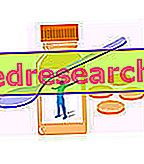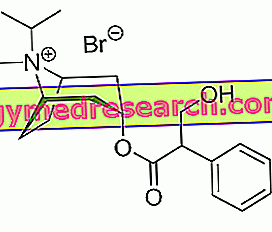Definition
As we can deduce from the name of the disease, aspergillosis is an infection supported by a pathogen belonging to the genus Aspergillus, a ubiquitous mold that, in favorable conditions, can infect humans through the respiratory tract and cause damage.
Causes
The pathogens belonging to the genus Aspergillus infect humans with spores: the host, by inhaling the spores of the pathogen, is contaminated; it must be remembered, however, that mold, in order to cause damage, must find a favorable condition, which translates into a decrease in the host's immune defenses.
- Risk factors: alterations of the immune system, asthma, cavities / bronchial cysts
Symptoms
Bronchial aspergillosis causes the typical symptoms of acute bronchitis, often associated with cough and emission of phlegm and blood; this form can also cause allergic symptoms (with bronchospasm and dyspnea). The invasive form, with its violent and often ominous course, generates acute pneumonia, and can involve the skin, heart, brain and sinuses; this form of aspergillosis appears in severely immunosuppressed patients (eg AIDS patients).
Information on Aspergillosis - Drugs for Aspergillosis Treatment is not intended to replace the direct relationship between health professional and patient. Always consult your doctor and / or specialist before taking Aspergillosis - Aspergillosis Treatment Medicines.
drugs
Aspergillosis is not a simple resolution disease; widespread forms give poor results in the vast majority of affected patients. From the first symptoms, it is recommended to undergo specific control tests, to start drug therapy within the shortest possible time, in order to avoid complications.
In healthy subjects, it is good to emphasize again, aspergillosis should not alarm too much, since Aspergillus creates damage almost exclusively in patients with mild or marked alteration of the immune system.
In more serious cases, especially in patients with invasive aspergillosis with contiguous lung lesions with the heart muscle, it is sometimes essential to resort to extreme life-saving treatments, such as surgical resection. Clearly, highly immunocompromised patients should follow some precautionary measures and indicated treatments to resolve the triggering cause: only in this way, it is possible to cure aspergillosis definitively.
The most widely used drugs in aspergillosis therapy are the antifungals and some corticosteroids to be taken orally (essentially to prevent the exacerbation of asthma and cystic fibrosis, when present).
- Voriconazole (eg Vfend): this drug (thiazole antifungal) is certainly one of the first-line treatments for the treatment of aspergillosis, especially for the invasive and pulmonary form. The drug is available in the form of tablets to be taken orally by 50 or 200 mg; or as a 40 mg / ml oral suspension. Alternatively, the drug can also be taken by drip into a vein. The dosage, the modality of administration and the duration of the therapy must be established by the doctor based on the severity of the condition, the weight and the age of the patient.
If the treatment with voriconazole does not show appreciable benefits for the patient suffering from aspergillosis, it is recommended to change therapy and choose non-thiazole antifungals.
- Posaconazole (eg. Noxafil): in addition to the treatment of aspergillosis, this drug is widely used in therapy to treat thrush. Indicatively, for the prophylaxis of infections sustained by molds of the Aspergillus genus, take 200-250 mg (5 ml), three times a day; the duration of therapy should be determined by the doctor. The drug is indicated for adults and for children who are already 13 years old.
- Caspofungin (eg. A href = "/ Fetti-illustrativi / Cancidas.html"> Cancidas): the drug is taken by infusion in a one-hour vein, and is indicated both for the treatment of invasive candidiasis, and for the aspergillosis treatment. Administer the drug once a day, at the initial dose of 70 mg (loading dose), followed by 50 mg / day in the following days. In patients weighing over 80 kilos, it is recommended to keep the dose at 70 mg. In subjects suffering from liver disorders in the context of aspergillosis, it is possible to reduce the dose, after consulting a doctor. For children between the ages of 12 and 17, the dosage should be calculated based on their body weight. Consult your doctor.
- Itraconazole (eg Sporanox, Trazer, Itraconaz EG): excellent drug used in therapy against Candida albicans infections, itraconazole is sometimes administered in patients with aspergillosis: generally, take a dose of 200- 400 mg, in a single dose or in two divided doses. It is recommended to continue therapy for at least three months, or until the disease has completely subsided. Consult your doctor.
- Amphotericin B (eg Abelcet): the drug belongs to the class of polyene antifungals and is sometimes administered to treat aspergillosis at a dose of 0.25 mg / kg / day, for slow intravenous infusion; the dose may increase from 0.5 to 1 mg / kg in the 24 hours, over a period of 2-4 days. The total dosage must not exceed 2 grams. Alternatively, administer 0.5-0.6 mg / kg of drug per day for slow intravenous infusion, possibly gradually increasing the dosage for patients with invasive aspergillosis.



